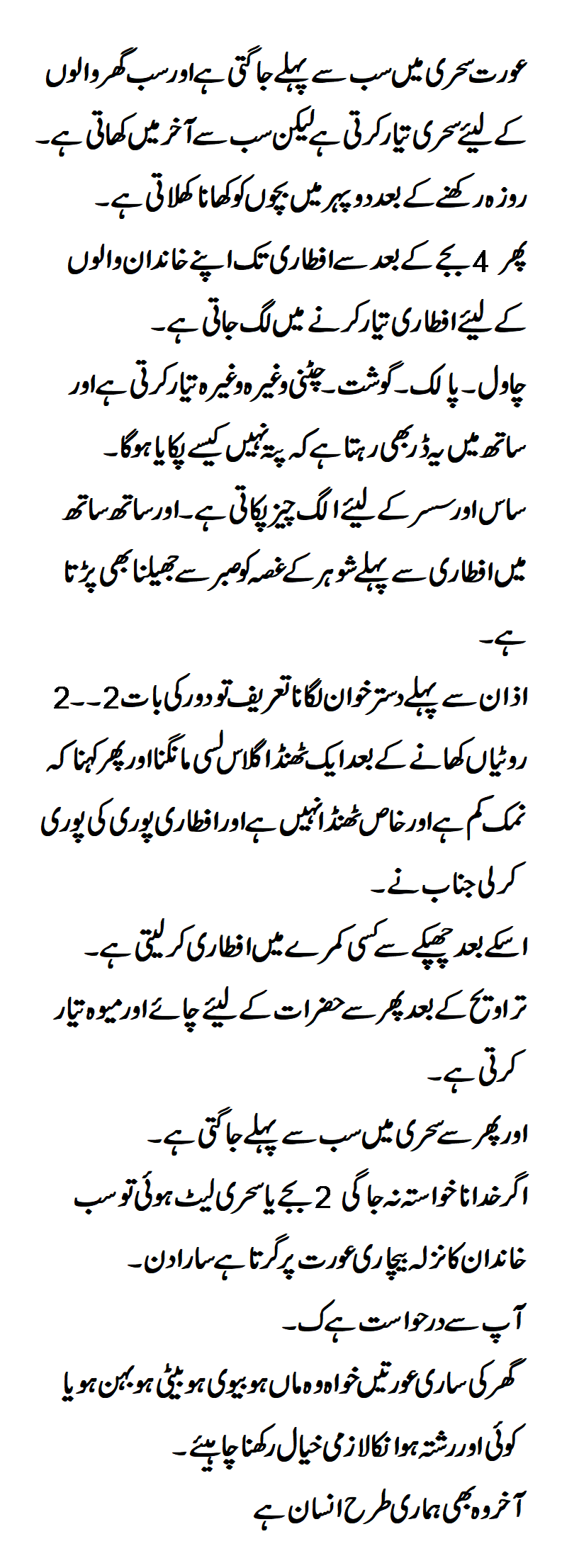Before suhur (the pre-dawn meal during Ramadan), as her family members sleep, Fatima remains awake to prepare the food for them and wake them up. And before iftar, as they relax or spend time outside the house ahead of the evening call to prayer, she spends her time preparing dishes, which her family selects in excess, forgetting what these choices will mean for her in terms of time and energy.
Between this and that, as they try to pass and enjoy as much time as they can, Fatima is busy with arrangements and housework.
“I wake up about an hour and a half before the call to prayer and prepare suhur, and then I get to the hardest task, which is waking up my husband and three children,” Fatima says.
Nour spends her time between preparing dishes which her husband and her children order before iftar, and washing their clothes and offering them drinks and sweets in the evening as they watch television.
This may be routine work for many women whether during Ramadan or the other months and days of the year, but Ramadan usually demands that women bear different types of pressures as the household manager while also dealing with the difficulty of fasting.
However, for seven years Ramadan has not been the Ramadan Syrians once knew, as now every Syrian house has at least one martyr, wounded or prisoner, and Syrian women are called to have the patience of Job in addition to what is demanded of other Arab women.

Every time the mother Salwa sits at the table she looks over her children and misses the son who was arrested by Assad forces three years ago and about whom she knows nothing. She feels she is choking, and the bite she is eating will not continue its way to her stomach when the food was a favorite of her son’s.
While some believe that women are half of society, many believe that women are the greater part of society.
This article was translated and edited by The Syrian Observer. Responsibility for the information and views set out in this article lies entirely with the author.